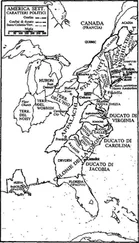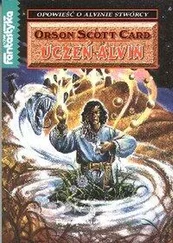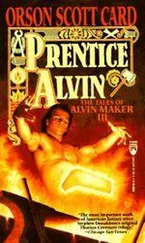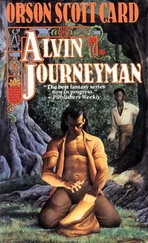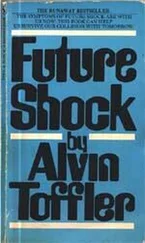Taking a different approach, the interrogators began asking about the economic status of the Shumaker family. Shu suspected blackmail and stonewalled. When they asked how many chickens his father owned, Shu couldn’t resist any longer. “Twelve,” he said. In reality, Shu’s father, Alvah, had earned a law degree at Harvard and ran a successful litigation practice—but Alvah’s education did not mean that the Shumakers had never worked a farm. In fact, the family lived on 250 acres in Pennsylvania with forty dairy cattle. They had four hundred chickens.
Shu divulged none of that family history, and to his private amusement, his response satisfied the interrogators. He had begun to notice that they often appeared under pressure to deliver answers to their superiors. The quality and substance of the answers seemed less important, and so Shu slowly began talking, feeding the North Vietnamese a diet of falsehoods made all the more believable by his soft voice and mild, earnest manner.
After that session, he returned to the solitude of Room Nineteen, amused by his performance. However, he soon realized—with horror and regret—that he’d broken the Code of Conduct. Though he’d lied, he’d given up more than the Big Four. He’d started down a dangerous path of compromise. Shu resolved to stonewall them thereafter.
The interrogations—quizzes, as he thought of them—persisted, usually twice a day, over the following weeks. During one interrogation, Owl told Shu that North Vietnamese air defenses had downed thirty-five American aircraft in a single day. The report sounded preposterous, and initially Shu dismissed it. Then he returned to his cell, alone. He’d had no outside news for weeks now, and with little else to occupy his mind, he began turning over the statement, examining it from every perspective. He began to wonder. Could it have been possible? Were their defenses good enough to bring down thirty-five aircraft? If so, what did that mean for America’s prospects—and for his own?
The dearth of information was an unexpected shock. At home and even aboard Coral Sea, news poured in from television programs, radio broadcasts, conversations, and firsthand experiences. Once in North Vietnam, that flow of trusted information ceased. All he heard was propaganda from interrogators; he supposed some statements might be partially true, he just couldn’t tell which ones. He would never wish a fellow aviator to meet his fate, yet he realized that new POWs offered the only trustworthy news sources—and he grew desperate to communicate with an American. Surely, he thought, repatriation would come soon. New POWs came sooner than any release.
Each day, Shu surveyed the courtyard from the crack beneath his door, hoping to see an American and establish contact; he felt certain other pilots would join him in Hỏa Lò. He eventually saw another POW regularly emptying his bucket—his honey pot—in the same bathhouse he used himself, one just off the courtyard. After dumping and scraping out his bucket, this new American would participate in the prison’s charade of personal hygiene by washing himself with the cold, less-than-clean water that trickled out of the latrine’s spigots. No inmate ever felt clean in Hỏa Lò Prison.
While the bathhouse proved fairly useless for cleaning, it did offer rare minutes of privacy away from the guards. Shu devised the first of countless note-drop procedures he would use in the years to come. In Room Nineteen, he found an old ink spill in a desk drawer. He added water to the dried puddle and reconstituted enough ink to wet the end of a bamboo shard. He neatly tore a rectangular section of toilet paper and poised his pen above it. He paused and considered his words, then wrote, “Welcome to the Hanoi Hilton.”
Thus one of the most famous nicknames in prison history came into being. During the coming years, hundreds of downed airmen would receive similar greetings when they arrived at Hỏa Lò. In time, the Vietnamese name became lost in the Western world, where people would simply refer to the prison as the Hanoi Hilton.
The meticulous engineer needed to know if the drop had been successful, so he added a second sentence. Dipping the bamboo in the ink again, Shu wrote, “If you get note, scratch balls as you’re coming back.”
The next day, May 15, 1965, he hid the note in his pants before his walk to the latrine. Once inside and out of view, he rolled the paper into what looked like a miniature cigarette, then tied it with a string from his clothes. He wiggled a loosened piece of concrete from the brick wall, revealing a small nook. He stashed the note and replaced the concrete, leaving a length of string exposed as a marker.
Back in his room, Shu pressed his temple to the floor and peered under the door, training his eye on the path to the bathhouse, anxious to see if his plan worked; three months had passed since he’d last communicated with an American. Luckily, nobody had checked the latrine before the next POW entered. The prisoner’s guard remained outside, paying little attention. Five minutes later, the man came walking out of the bath, wildly scratching his crotch: He’d found the note. Shu had at last established friendly contact. When he returned to the latrine the next day, Shu found that the POW had used a burned matchstick to scratch a response: “Storz, Capt. USAF.”
* * *
Unlike most downed aviators who would arrive in Hanoi, thirty-one-year-old Air Force Captain Ronald E. Storz did not fly jets, or any other large aircraft, for that matter. He piloted a Cessna L-19 forward observation plane. On April 28, 1965, he had been flying low over Sông Bến Hải, the river which flowed along the DMZ. When ground fire disabled the plane’s engine, he was forced to make an emergency landing on the river’s north side. The North Vietnamese quickly took Ron into custody, and he became the eighth American aviator to arrive at the Hanoi Hilton.
Ron’s parents had emigrated from Germany to the United States before World War II, and when America entered the war, Ron saw his father volunteer to serve in the U.S. Army, willing to take up arms against his own homeland because he believed passionately in America’s principles. The army rejected him, however, and he had to confront the public prejudice that came as his new country went to war against his old country. Max Storz lost his job, and to keep the family of seven fed, Ron’s mother worked as a maid. The government confiscated the family’s firearms; they stopped speaking German entirely. Yet their wartime experience never diminished their love of America, and they instilled that patriotism in their children.
Before long, that passion for country drove eighteen-year-old Ron to enlist in the U.S. Air Force. He worked hard for three years and received his commission as an officer in 1954. By the fall of 1964, Ron had become a flight instructor. He and his wife, Sandra, had a five-year-old son and a newborn daughter. That autumn, between flying and being a father, Ron read two books about prisoners of war in World War II, one by a German, one by a Brit. Their stories of survival fascinated him, and as he read and reread the books, he contemplated what he would have done in their situations. In late fall, Ron learned a friend had been ordered to Vietnam and would miss the birth of his first child. Even though he knew it would mean an early separation from his own wife, son, and newborn daughter, Ron volunteered to take his place.
On November 2, 1964, at the family’s home in New Hampshire, Ron knelt in front of his son, Mark, and pulled him close. Keeping with the long tradition of fathers leaving for war, he explained to his young son, “With me away, you’re going to have to take care of the family and be the man for your mother and your baby sister.” Mark would never forget how the penetrating yet soft blue eyes of his father looked at him that day. Ron left for Vietnam, thirty-one years old and promising to return soon. As Sandra watched him leave, she thought, “I’ll never see him again in this life.” She quickly dismissed the premonition; surely he’d be home within a year.
Читать дальше

